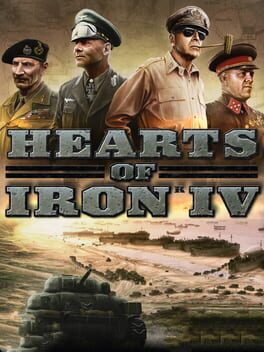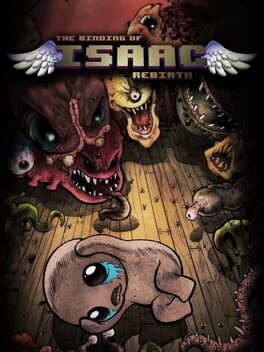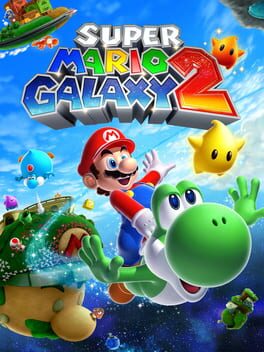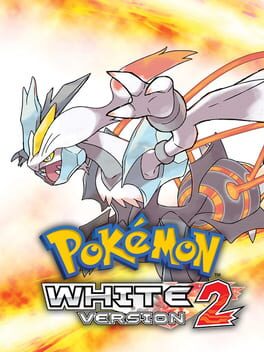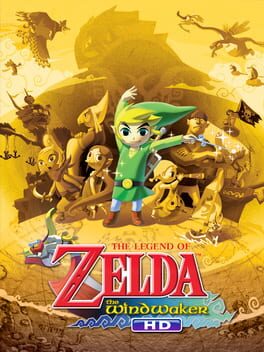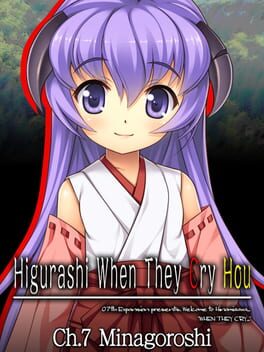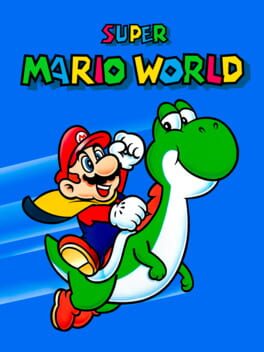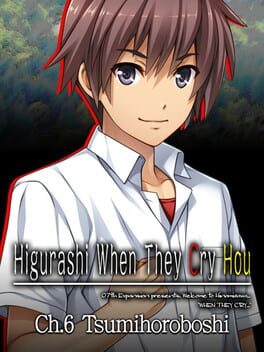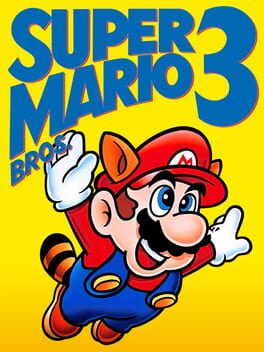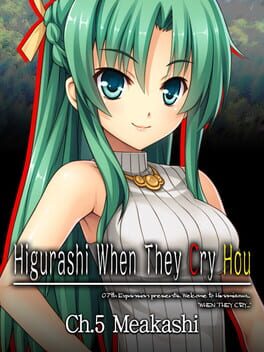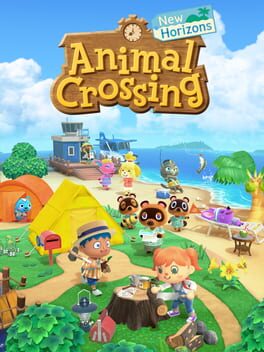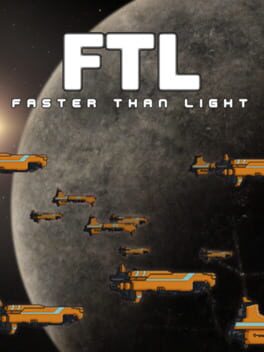Scale
Bio
I only write more than 3 sentences if its a visual novel or pikmin
I only write more than 3 sentences if its a visual novel or pikmin
Badges

N00b
Played 100+ games

Gone Gold
Received 5+ likes on a review while featured on the front page

Liked
Gained 10+ total review likes

Best Friends
Become mutual friends with at least 3 others

2 Years of Service
Being part of the Backloggd community for 2 years

Noticed
Gained 3+ followers
Favorite Games
108
Total Games Played
006
Played in 2024
000
Games Backloggd
Recently Played See More
Recently Reviewed See More
This review contains spoilers
When I first watched the anime for Higurashi, I always felt the most mixed about this arc. While the ride is fun for its duration, it ends up feeling incredibly pointless when victory is snatched away at the very end. I have a different opinion now, and I think it actually contributes a lot to the message of the entire series. Nonetheless this arc is still significantly more flawed than the previous ones, especially compared to the prior two answer arcs which were nearly perfect.
One of the surface level issues with this arc is that it's unfortunately the 7th game out of 8. With the themes of this chapter being all about fighting against fate and not falling to pessimism, it's somewhat harmed when you know going in that it's doomed to failure. It's worth noting that I now feel this perspective is somewhat invalid, as the journey there is incredibly important and Rika's eventual failure is critical to showing how this chapter developed her and her perspective. Nonetheless, my first thoughts when I finished the anime version of this arc were "that was pointless," so I felt the need to note this down.
The more pressing issue with this arc is regarding it's main antagonist, the Child Welfare Office. This government agency is depicted as so comically incompetent that it's hard to take the arc seriously. The employees don't know anything about the case, and the social workers and administrators are made out to be incredibly stubborn for the sole purpose of establishing an antagonist to work against. The interactions with the office are incredibly slow and boring too, since it basically bogs you down in a slew of government bureaucracy alongside the main cast. Ryukishi even admits that his depiction of the office was poor in the Staff Room, and apologies for it. Government corruption is an interesting topic to tackle, but this arc handles it poorly and is extremely one-note.
As for the positives, the entire first section of this arc is a 10/10. Being able to see Rika's perspective is awesome as a twist from the previous chapters, and Hanyuu just being dumped on you without much initial explanation is really funny. There's a ton of cute interactions early on, and it's lovely to see how Keiichi is able to break down Rika's negative mindset and encourage her to work towards changing her own fate for the rest of this chapter. The character interactions are genuinely at their all time peak for the series in the first half. When Teppei eventually shows up, it elicits genuine emotion and it's heartbreaking to see how Rika desperately struggles to save Satoko before eventually giving up. She even goes as far to request that the Yamainu and Takano assassinate her uncle (which is a different issue I'll discuss later).
Even after Teppei shows up, this arc stays positive. The scene with Keiichi and Shion's argument over how to deal with Teppei is amazing, and I love how Shion is made to directly parallel Ch.3 Keiichi, even repeating the 1500 seconds line again. It's another great aspect of his character development and a fantastic continuation of his role from the previous arc.
Overall though I think the flaws of this arc become the most noticeable once it shifts back to a Keiichi POV. Staying with Rika's POV could've allowed the Child Welfare Office segment to have a more unique perspective as well as give the new character of Hanyuu more time to shine. Although Keiichi is not a bad character by any means (quite the opposite really), it still takes away one little change that could've kept the arc more unique. As per usual though it's still fun to see him band together a crowd to fight for Satoko. The section where he convinces Mion's Grandmother is where the arc finally starts getting good again.
After Satoko is saved, the arc switches back to a primarily Rika POV, which is a breath of fresh air. Probably the main benefit of the sluggish government bureaucracy segment is that it almost makes you forget that Rika is still going to get killed soon. This makes the sudden snap back to reality after their success feel a lot more impactful, which I thought was really well executed. Everything from Rika's preparations up to the Takono reveal and her execution are really enthralling to read. I really love the Hinamizawa Syndrome lore dump too, though its questionable how Rika knows so much about it and yet never suspected Takano seriously. The scene where Takano walks up to each restrained club member and shoots them in the head is honestly kinda peak. Rika's execution scene is also beautifully done, and I love it for the same reasons I love Satoko's resolve in Ch.5. The Emergency Manual 34 segment at the end is also harrowing, though I think it was probably one of the most underwhelming endings compared to Ch.3, 5, or 6. I guess it's because the main cast is already dead at that point, so you're only hearing about unnamed villagers being killed.
Another issue that people take with this arc/Rika as a character is how she never once suspected Takano/the Yamainu as being her killers. This is honestly completely understandable, and has always been Higurashi's greatest structural flaw. This is especially the case with Hanyuu introduced, the sole supernatural element in the series who explicitly goes out and about with her sole ability being to observe people. However, in her defense, the Yamainu and Tokyo represent Rika's critical blind spot that she has no reason to ever suspect of killing her. As explained in the chapter, they're actually the people she suspects the least of killing her, since they know best that her death could cause a potential disaster. It's also stated that she has suspected Takano individually of being a potential culprit, although that topic isn't explored much more than as an offhanded remark.
Hanyuu is another good addition to this arc as well, and having Oyashiro-sama be a useless crybaby is a very funny twist (I love her). Her role as an unwitting antagonist is incredibly interesting, and partially explains why Rika was unable to solve her murder after 100 years. Her pessimism has been the primary reason for Rika being so reactive as opposed to active in the previous chapters, and the fact that Rika is the sole person she can talk to/be seen by can partially explain why Hanyuu never particularly helped to save her, instead keeping her stuck in the loops forever. I love how, by the ending, the goal shifts from breaking Rika's pessimistic attitude to instead breaking Hanyuu's, with Rika's perspective now fully changed. The implication that Hanyuu's existence is the cause of Hinamizawa syndrome is another interesting aspect of her character that is often left undiscussed. Overall I think she's really well executed here, but I'm more interested to see how she's handled in the following chapter.
The biggest issue with this chapter is definitely that it's the first one that requires a significant level of suspension of disbelief. Hanyuu (and, by proxy, Rika's looping) is the first outright supernatural occurrence in the story that cannot be explained by anything else. Additionally, the laughable incompetence and stubbornness by the Child Welfare Office is really hard to believe, making it harder to really get immersed in the story. An issue that arises at the end of the chapter regards the Yamainu, Takano, and the club itself. The Yamainu are meant to be an elite assassination unit, and yet they get their asses whooped by the unarmed club members and are only bailed out through their numbers and by Takano. This is an issue that only gets worse in Chapter 8, and it's really hard to take seriously and not just laugh at. It's arguable that it can just be seen as an extension of the club games though, but its still silly when they're beating actual soldiers in a hand to hand combat scenario and somehow not just getting immediately gunned down like Oishi was. The Emergency Manual 34 and Takano's motivations are also somewhat hard to believe, but I think that's a topic better discussed in Ch.8.
Overall though I still think this is a fairly solid chapter, but it's definitely shakier than 5 or 6. The beginning is fantastic, but the middle is a difficult-to-believe slog. The ending is once again really gripping to read though, and overall is the perfect setup for Chapter 8.
One of the surface level issues with this arc is that it's unfortunately the 7th game out of 8. With the themes of this chapter being all about fighting against fate and not falling to pessimism, it's somewhat harmed when you know going in that it's doomed to failure. It's worth noting that I now feel this perspective is somewhat invalid, as the journey there is incredibly important and Rika's eventual failure is critical to showing how this chapter developed her and her perspective. Nonetheless, my first thoughts when I finished the anime version of this arc were "that was pointless," so I felt the need to note this down.
The more pressing issue with this arc is regarding it's main antagonist, the Child Welfare Office. This government agency is depicted as so comically incompetent that it's hard to take the arc seriously. The employees don't know anything about the case, and the social workers and administrators are made out to be incredibly stubborn for the sole purpose of establishing an antagonist to work against. The interactions with the office are incredibly slow and boring too, since it basically bogs you down in a slew of government bureaucracy alongside the main cast. Ryukishi even admits that his depiction of the office was poor in the Staff Room, and apologies for it. Government corruption is an interesting topic to tackle, but this arc handles it poorly and is extremely one-note.
As for the positives, the entire first section of this arc is a 10/10. Being able to see Rika's perspective is awesome as a twist from the previous chapters, and Hanyuu just being dumped on you without much initial explanation is really funny. There's a ton of cute interactions early on, and it's lovely to see how Keiichi is able to break down Rika's negative mindset and encourage her to work towards changing her own fate for the rest of this chapter. The character interactions are genuinely at their all time peak for the series in the first half. When Teppei eventually shows up, it elicits genuine emotion and it's heartbreaking to see how Rika desperately struggles to save Satoko before eventually giving up. She even goes as far to request that the Yamainu and Takano assassinate her uncle (which is a different issue I'll discuss later).
Even after Teppei shows up, this arc stays positive. The scene with Keiichi and Shion's argument over how to deal with Teppei is amazing, and I love how Shion is made to directly parallel Ch.3 Keiichi, even repeating the 1500 seconds line again. It's another great aspect of his character development and a fantastic continuation of his role from the previous arc.
Overall though I think the flaws of this arc become the most noticeable once it shifts back to a Keiichi POV. Staying with Rika's POV could've allowed the Child Welfare Office segment to have a more unique perspective as well as give the new character of Hanyuu more time to shine. Although Keiichi is not a bad character by any means (quite the opposite really), it still takes away one little change that could've kept the arc more unique. As per usual though it's still fun to see him band together a crowd to fight for Satoko. The section where he convinces Mion's Grandmother is where the arc finally starts getting good again.
After Satoko is saved, the arc switches back to a primarily Rika POV, which is a breath of fresh air. Probably the main benefit of the sluggish government bureaucracy segment is that it almost makes you forget that Rika is still going to get killed soon. This makes the sudden snap back to reality after their success feel a lot more impactful, which I thought was really well executed. Everything from Rika's preparations up to the Takono reveal and her execution are really enthralling to read. I really love the Hinamizawa Syndrome lore dump too, though its questionable how Rika knows so much about it and yet never suspected Takano seriously. The scene where Takano walks up to each restrained club member and shoots them in the head is honestly kinda peak. Rika's execution scene is also beautifully done, and I love it for the same reasons I love Satoko's resolve in Ch.5. The Emergency Manual 34 segment at the end is also harrowing, though I think it was probably one of the most underwhelming endings compared to Ch.3, 5, or 6. I guess it's because the main cast is already dead at that point, so you're only hearing about unnamed villagers being killed.
Another issue that people take with this arc/Rika as a character is how she never once suspected Takano/the Yamainu as being her killers. This is honestly completely understandable, and has always been Higurashi's greatest structural flaw. This is especially the case with Hanyuu introduced, the sole supernatural element in the series who explicitly goes out and about with her sole ability being to observe people. However, in her defense, the Yamainu and Tokyo represent Rika's critical blind spot that she has no reason to ever suspect of killing her. As explained in the chapter, they're actually the people she suspects the least of killing her, since they know best that her death could cause a potential disaster. It's also stated that she has suspected Takano individually of being a potential culprit, although that topic isn't explored much more than as an offhanded remark.
Hanyuu is another good addition to this arc as well, and having Oyashiro-sama be a useless crybaby is a very funny twist (I love her). Her role as an unwitting antagonist is incredibly interesting, and partially explains why Rika was unable to solve her murder after 100 years. Her pessimism has been the primary reason for Rika being so reactive as opposed to active in the previous chapters, and the fact that Rika is the sole person she can talk to/be seen by can partially explain why Hanyuu never particularly helped to save her, instead keeping her stuck in the loops forever. I love how, by the ending, the goal shifts from breaking Rika's pessimistic attitude to instead breaking Hanyuu's, with Rika's perspective now fully changed. The implication that Hanyuu's existence is the cause of Hinamizawa syndrome is another interesting aspect of her character that is often left undiscussed. Overall I think she's really well executed here, but I'm more interested to see how she's handled in the following chapter.
The biggest issue with this chapter is definitely that it's the first one that requires a significant level of suspension of disbelief. Hanyuu (and, by proxy, Rika's looping) is the first outright supernatural occurrence in the story that cannot be explained by anything else. Additionally, the laughable incompetence and stubbornness by the Child Welfare Office is really hard to believe, making it harder to really get immersed in the story. An issue that arises at the end of the chapter regards the Yamainu, Takano, and the club itself. The Yamainu are meant to be an elite assassination unit, and yet they get their asses whooped by the unarmed club members and are only bailed out through their numbers and by Takano. This is an issue that only gets worse in Chapter 8, and it's really hard to take seriously and not just laugh at. It's arguable that it can just be seen as an extension of the club games though, but its still silly when they're beating actual soldiers in a hand to hand combat scenario and somehow not just getting immediately gunned down like Oishi was. The Emergency Manual 34 and Takano's motivations are also somewhat hard to believe, but I think that's a topic better discussed in Ch.8.
Overall though I still think this is a fairly solid chapter, but it's definitely shakier than 5 or 6. The beginning is fantastic, but the middle is a difficult-to-believe slog. The ending is once again really gripping to read though, and overall is the perfect setup for Chapter 8.
